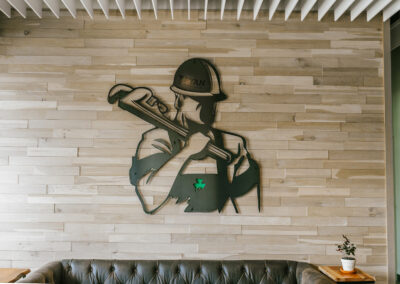The National Fire Protection Association (NFPA) requires an internal inspection of piping every five years or when conditions indicate the need for an internal inspection. The primary purpose of this investigation is to monitor corrosion levels in the piping. Occasionally during these inspections, rust, slime, sediment or debris are observed in the system. If the volume or type of foreign material warrants further inspection, an obstruction investigation may be required to ensure that piping, valves and other components don’t become obstructed to the point where they might leak or fail under pressure.
If the results of an internal inspection reveal sufficient foreign material, an obstruction investigation may be required. Additional conditions may also lead to an obstruction investigation. These conditions, as outlined by the NFPA, include:
- Defective intake for fire pumps
- Discharge of foreign material during water tests
- Foreign material in fire pumps, dry pipe valves or check valves
- Foreign material in water during drain tests or plugging of inspectors test connections
- Plugged sprinklers
- Plugged piping in sprinkler systems dismantled during building alterations
- Failure to flush yard piping or surround public mains following new installation or repairs
- A record of broken public mains in the vicinity
- Abnormally frequent false tripping of dry pipe valves
- A system returned to service after a shutdown greater than 1 year
- Reason to believe sprinkler system contains sodium silicate or other highly corrosive fluxes in copper systems
- A system that has been supplied with raw water via the fire department connection
- Pinhole leaks
- A 50% increase in the time it takes water to travel to the inspector’s test connection from the time the valve trips during a full flow trip test of dry pipe sprinkler system when compared to the original system acceptance test.
Whether you are seeking a professional for routine Internal Investigation or a second opinion on an obstruction investigation, Ryan Fireprotection can help. Our sprinkler professionals are highly trained and experienced in various types of systems, including wet, dry, pre-action, in-rack and ESFR (early suppression, fast response). With this combination of training and experience, we can perform the required inspections, confirm system readiness, and provide recommendations if the results of the inspection require further action.
